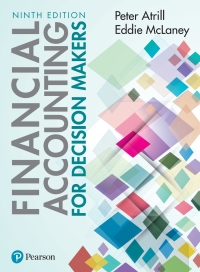


To prepare a master budget for July, August, and September of 2019, management gathers the following information. a. Sales were 20,000 units in June. Forecasted sales in units are as follows: July, 21,000; August, 19,000; September, 20,000; and October, 24,000. The product's selling price is $17 per unit and its total product cost is $14.35 per unit. b. Company policy calls for a given month's ending finished goods inventory to equal 70% of the next month's expected unit sales. The June 30 finished goods inventory is 16,800 units, which does not comply with the policy. c. Company policy calls for a given month's ending raw materials inventory to equal 20% of the next month's materials requirements. The June 30 raw materials inventory is 4,375 units (which also fails to meet the policy). The budgeted September 30 raw materials inventory is 1,980 units. Raw materials cost $8 per unit. Each finished unit requires 0.50 units of raw materials. d. Each finished unit requires 0.50 hours of direct labor at a rate of $16 per hour. e. Overhead is allocated based on direct labor hours. The predetermined variable overhead rate is $2.70 per direct labor hour. Depreciation of $20,000 per month is treated as fixed factory overhead. f. Monthly general and administrative expenses include $9,000 administrative salaries and 0.9% monthly interest on the long-term note payable. g. Sales representatives' commissions are 10% of sales and are paid in the month of the sales. The sales manager's monthly salary is $3,500. h. The company expects 30% of sales to be for cash and the remaining 70% on credit. Receivables are collected in full in the month following the sale (none are collected in the month of the sale). i. All raw materials purchases are on credit, and no payables arise from any other transactions. One month's raw materials purchases are fully paid in the next month. j. Dividends of $20,000 are to be declared and paid in August. k. Income taxes payable at June 30 will be paid in July. Income tax expense will be assessed at 35% in the quarter and paid in October 1. Equipment purchases of $100,000 are budgeted for the last day of September. m. The minimum ending cash balance for all months is $40,000. If necessary, the company borrows enough cash using a short- term note to reach the minimum. Short-term notes require an interest payment of 1% at each month-end (before any repayment). If the ending cash balance exceeds the minimum, the excess will be applied to repaying the short-term notes payable balance. Problem 7-4B Manufacturing: Preparation of a complete master budget P1 P2 P3 The management of Nabar Manufacturing prepared the following estimated balance sheet for June 2019. Assets Cash Accounts receivable Raw materials inventory Finished goods inventory Total current assets Equipment Accumulated depreciation Equipment, net NABAR MANUFACTURING Estimated Balance Sheet June 30, 2019 Liabilities and Equity $ 40,000 Accounts payable $ 51,400 249,900 Income taxes payable 10,000 35,000 Short-term notes payable 24,000 241,080 Total current liabilities 85,400 565,980 Long-term note payable 300,000 720,000 Total liabilities 385,400 (240,000) Common stock 600,000 480,000 Retained earnings 60,580 Total stockholders' equity 660,580 $1,045,980 Total liabilities and equity $1,045,980 Total assets Required Prepare the following budgets and other financial information as required. All budgets and other financial information should be prepared for the third calendar quarter, except as otherwise noted below. Round calculations to the nearest whole dollar. 1. Sales budget. 2. Production budget. Check (2) Units to produce: July, 17,500; August, 19,700 3. Raw materials budget. (3) Cost of raw materials purchases: July, $50,760 4. Direct labor budget. 5. Factory overhead budget. (5) Total overhead cost: August, $46,595 6. Selling expense budget. 7. General and administrative expense budget. 8. Cash budget. (8) Ending cash balance: July, $96,835; August, $141,180 9. Budgeted income statement for the entire quarter (not for each month separately). 10. Budgeted balance sheet as of September 30, 2019. (10) Budgeted total assets: Sep. 30, $1,054,920









